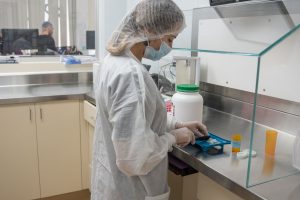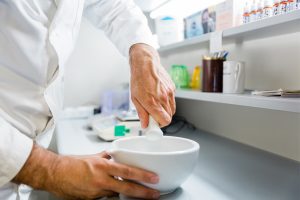It’s important to always speak with your doctor about your medication options, including specialty compounding. This is the process of customizing medications to meet the unique needs of individual patients. When considering specialty compounding, it’s important to communicate effectively with your doctor to ensure that you receive the best possible care.
Here are nine tips for communicating with your doctor about specialty compounding:
Understand Your Medication Needs
Before meeting with your doctor, take some time to understand your needs and why specialty compounding may be a good option for you. Research the benefits and risks of specialty compounding and prepare a list of questions and concerns to discuss with your doctor.
Bring a List of Medications You Are Taking
Bring a list of all medications you are currently taking, including over-the-counter medications and supplements. This can help your doctor determine if specialty compounding is safe and appropriate for you.
Discuss Your Medical History
Discuss your medical history with your doctor, including any previous experiences with medications or allergies. This can help your doctor determine the best course of action for your care.
Be Honest About Your Symptoms
This is essential! Be honest and open with your doctor about your symptoms, even if they are embarrassing or uncomfortable. This can help your doctor determine the underlying cause of your symptoms and recommend the best treatment plan. It can also prevent any future negative reactions.
Ask Questions
The more questions you ask, the better. Ask questions and clarify any misunderstandings you may have about specialty compounding. This can help you make informed decisions about your care and ensure that you receive the best possible treatment.
Discuss Alternative Treatments
Discuss alternative treatments with your doctor, such as traditional medications or lifestyle changes. Your doctor can help you determine if specialty compounding is the best option for you or if another treatment may be more appropriate. There are many approaches you can take to improve your health.
Be Prepared for Side Effects
This is common. Be prepared for potential side effects of specialty compounded medications. Discuss any concerns or questions you may have about side effects with your doctor. Report side effects as soon as possible.
Follow Your Doctor’s Instructions
Follow your doctor’s instructions carefully, including dosages and instructions for use. If you have any questions or concerns, don’t hesitate to contact your doctor or pharmacist. Never make assumptions about the dosage and application of medications.
Provide Feedback
Again, this is very important. Provide feedback to your doctor and pharmacist about your experience with specialty compounded medications. This can help them better understand your needs and ensure that you receive the best possible care. This can also help them understand adjustments that may need to be made to your dosage.
Communicating with your doctor is crucial when considering specialty compounding. This you can ensure that you receive the best possible care and treatment for your unique needs.






